Saudi Arabian Crown Prince Mohammed bin Salman hosted a summit of 42 nations over the weekend to draft principles for the end of Putin’s War in Ukraine. Russia was not invited to the talks, but China and the remainder of the BRICS (Brazil, Russia, India, China, South Africa) group sent delegations.
The talks concluded with a statement of principles, and the group agreed to meet again in the next few weeks and that Russia would be excluded from the process. Ukrainian President Volodymyr Zelensky’s 10-point peace plan was the starting point for the discussion.
- Radiation and nuclear safety, focusing on restoring safety around Europe’s largest nuclear power plant, Zaporizhzhia in Ukraine, which is now Russian-occupied.
- Food security, including protecting and ensuring Ukraine’s grain exports to the world’s poorest nations.
- Energy security, with a focus on price restrictions on Russian energy resources and aiding Ukraine with restoring its power infrastructure, half of which has been damaged by Russian attacks.
- Release all prisoners and deportees, including war prisoners and children deported to Russia.
- Restoring Ukraine’s territorial integrity and Russia reaffirming it according to the UN Charter, which Zelensky said is “not up to negotiations.”
- Withdrawal of Russian troops, cessation of hostilities, and restoration of Ukraine’s state borders with Russia.
- Justice, including establishing a special tribunal to prosecute Russian war crimes.
- Prevention of ecocide, the need for protection of the environment, with a focus on demining and restoring water treatment facilities.
- Prevention of conflict escalation and building security architecture in the Euro-Atlantic space, including guarantees for Ukraine.
- Confirmation of the war’s end, including a document signed by the involved parties.
The 10 points do not stand alone. They fit within a framework that has an accelerated timeline to bring about an international conference this winter.
Head of the Ukrainian Presidential Office, Andriy Yermak, said at a meeting of the Congress of Local and Regional Authorities held in Ivano-Frankivsk, “The Ukrainian Peace Formula contains ten fundamental points, the implementation of which will not only ensure peace for Ukraine but also create mechanisms to counter future conflicts in the world.”
He emphasized that the Ukrainian side uses a three-phase structure for implementing the Zelensky formula. The first phase is meeting with ambassadors accredited to Ukraine.
The second phase is of Ukraine initiating meetings of national security advisors to find optimal wording and mechanisms for implementing the plan, and the third phase will be an inaugural global summit at the level of heads of state, which may take place by the end of the year.
There was surprising unity on the principles.
After the talks in Jeddah concluded, diplomats said there was broad acceptance that central principles of international law, like respect for Ukraine’s sovereignty and territorial integrity, should be at the heart of future peace talks between Ukraine and Russia. There was agreement on pursuing more detailed work on the global impact of the war, and most countries attending, including China, appeared willing to meet again in the coming weeks in the current format, with Russia excluded, according to people involved in or briefed on the closed-door talks.
It also seems to have done a solid job convincing the Global South that the war is about much more than the invasion of Ukraine.
“The consensus is that this isn’t a European war, but has impact on food, energy and economic stability globally and that it will take everyone on board to get to the final outcome of a settlement,” said a diplomat from one of the non-Western countries.
Unlike the last conference in Copenhagen, Zelensky faced no pressure to drop his plan; in particular, there was broad consensus that withdrawing Russian forces from Ukraine was necessary. China has expressed a strong interest in continuing the talks.
The advertised purpose of the conference was to pave the way to a durable and equitable peace agreement. Equitable, of course, is in the eye of the beholder. Those folks who believe that Russia was “tricked” into or “forced” to invade Ukraine because of NATO shenanigans orchestrated by Bond-villain Victoria Nuland will view “equitable” quite differently from people without substance abuse issues.
The Real Agenda
The conference goes a long way toward defanging the Russian-generated narrative that the West is not interested in peace. By bringing in major players from the so-called “Global South,” the issues of food and energy insecurity are given a hearing, and Zelensky’s plan incorporates many of those needs.
Russia’s shunning by a major international conference peace in a war that Russia started shows how little diplomatic clout Russia has. The fact that Russia’s BRICS partners showed up and didn’t run interference for the Kremlin is also a sign that very few countries will step up to help Russia pursue its goals.
Saudi Arabia’s hosting of the conference was the epitome of enlightened self-interest. It is trying to remove the stench of Jamal Khashoggi’s killing and a protracted and brutal war in Yemen. Hosting a conference that attracted the most powerful nations in the world is a step toward adding to Saudi Arabia’s political clout.
The biggest difference between the Copenhagen and Jeddah meetings was attendance—more than twice as many countries attended or dialed into Saturday’s talks. That included European countries, Japan, South Korea, Indonesia, Turkey and South Africa.
Most significantly China, which was invited to Copenhagen but stayed away, sent a delegation to Jeddah. Western diplomats said Beijing played a generally constructive role in the talks.
China’s Diplomacy
China showed up less to negotiate peace than to try to steer the conference in a friendly direction. Beijing floated the 12-point plan it rolled out in February; see US Threatens to Release Intelligence Showing China Considering Involvement in Putin’s War in Ukraine and China’s Peace Proposal for Putin’s War in Ukraine Is Just Internet Trolling.
This was how I described the Chinese peace plan when it was unveiled.
- Respecting the sovereignty of all countries.Universally recognized international law, including the purposes and principles of the United Nations Charter, must be strictly observed. The sovereignty, independence and territorial integrity of all countries must be effectively upheld. All countries, big or small, strong or weak, rich or poor, are equal members of the international community. All parties should jointly uphold the basic norms governing international relations and defend international fairness and justice. Equal and uniform application of international law should be promoted, while double standards must be rejected.
- Abandoning the Cold War mentality.The security of a country should not be pursued at the expense of others. The security of a region should not be achieved by strengthening or expanding military blocs. The legitimate security interests and concerns of all countries must be taken seriously and addressed properly. There is no simple solution to a complex issue. All parties should, following the vision of common, comprehensive, cooperative and sustainable security and bearing in mind the long-term peace and stability of the world, help forge a balanced, effective and sustainable European security architecture. All parties should oppose the pursuit of one’s own security at the cost of others’ security, prevent bloc confrontation, and work together for peace and stability on the Eurasian Continent.
- Ceasing hostilities.Conflict and war benefit no one. All parties must stay rational and exercise restraint, avoid fanning the flames and aggravating tensions, and prevent the crisis from deteriorating further or even spiraling out of control. All parties should support Russia and Ukraine in working in the same direction and resuming direct dialogue as quickly as possible, so as to gradually deescalate the situation and ultimately reach a comprehensive ceasefire.
- Resuming peace talks.Dialogue and negotiation are the only viable solution to the Ukraine crisis. All efforts conducive to the peaceful settlement of the crisis must be encouraged and supported. The international community should stay committed to the right approach of promoting talks for peace, help parties to the conflict open the door to a political settlement as soon as possible, and create conditions and platforms for the resumption of negotiation. China will continue to play a constructive role in this regard.
- Resolving the humanitarian crisis.All measures conducive to easing the humanitarian crisis must be encouraged and supported. Humanitarian operations should follow the principles of neutrality and impartiality, and humanitarian issues should not be politicized. The safety of civilians must be effectively protected, and humanitarian corridors should be set up for the evacuation of civilians from conflict zones. Efforts are needed to increase humanitarian assistance to relevant areas, improve humanitarian conditions, and provide rapid, safe and unimpeded humanitarian access, with a view to preventing a humanitarian crisis on a larger scale. The UN should be supported in playing a coordinating role in channeling humanitarian aid to conflict zones.
- Protecting civilians and prisoners of war (POWs).Parties to the conflict should strictly abide by international humanitarian law, avoid attacking civilians or civilian facilities, protect women, children and other victims of the conflict, and respect the basic rights of POWs. China supports the exchange of POWs between Russia and Ukraine, and calls on all parties to create more favorable conditions for this purpose.
- Keeping nuclear power plants safe.China opposes armed attacks against nuclear power plants or other peaceful nuclear facilities, and calls on all parties to comply with international law including the Convention on Nuclear Safety (CNS) and resolutely avoid man-made nuclear accidents. China supports the International Atomic Energy Agency (IAEA) in playing a constructive role in promoting the safety and security of peaceful nuclear facilities.
- Reducing strategic risks.Nuclear weapons must not be used and nuclear wars must not be fought. The threat or use of nuclear weapons should be opposed. Nuclear proliferation must be prevented and nuclear crisis avoided. China opposes the research, development and use of chemical and biological weapons by any country under any circumstances.
- Facilitating grain exports.All parties need to implement the Black Sea Grain Initiative signed by Russia, Türkiye, Ukraine and the UN fully and effectively in a balanced manner, and support the UN in playing an important role in this regard. The cooperation initiative on global food security proposed by China provides a feasible solution to the global food crisis.
- Stopping unilateral sanctions.Unilateral sanctions and maximum pressure cannot solve the issue; they only create new problems. China opposes unilateral sanctions unauthorized by the UN Security Council. Relevant countries should stop abusing unilateral sanctions and “long-arm jurisdiction” against other countries, so as to do their share in deescalating the Ukraine crisis and create conditions for developing countries to grow their economies and better the lives of their people.
- Keeping industrial and supply chains stable.All parties should earnestly maintain the existing world economic system and oppose using the world economy as a tool or weapon for political purposes. Joint efforts are needed to mitigate the spillovers of the crisis and prevent it from disrupting international cooperation in energy, finance, food trade and transportation and undermining the global economic recovery.
- Promoting post-conflict reconstruction.The international community needs to take measures to support post-conflict reconstruction in conflict zones. China stands ready to provide assistance and play a constructive role in this endeavor.
This kind of cynical gesture has been the hallmark of Chinese diplomacy since, maybe, the “Warring States” period (475-221 BC). You’ll notice what the proposal doesn’t call for: an end to the war (Item 3 proposes a gradual de-escalation leading “ultimately” to a cease-fire), and it treats Russia and Ukraine as equally responsible for the war when that is not the case.
First and foremost, China is as much a participant in this conflict as NATO. It has foreign policy and prestige interests in Russia emerging as the victor (US Threatens to Release Intelligence Showing China Considering Involvement in Putin’s War in Ukraine). It is also notorious for bootstrapping its own objectives into unrelated agreements. This one is no different.
Item 1 (Respecting the sovereignty of all countries), at first glance, would seem to be a slap at Russia. After all, it is Russia who invaded a neighbor that could not threaten Russia’s borders or territorial integrity. However, what this point hides is a stalking horse for absorbing Taiwan. China sees Taiwan erroneously as a “breakaway province,” and this language, if accepted, would give the stamp of approval to a Chinese attack.
Item 2 (Abandoning the Cold War mentality) is aimed not only at NATO but also at the defensive alliance of the US, South Korea, and Japan, which could be expected to come to Taiwan’s aid if it were invaded.
Item 3 (Resuming peace talks) is sort of bizarre as there have never been “peace talks” to resume. The abortive talks between Ukraine and Russia in Turkey went nowhere because there was no common ground for talks. That situation hasn’t changed. The fact that China doesn’t call for withdrawing Russian forces to the status quo ante as a precondition for talks shows it is not a serious proposal. As no one in Europe trusts China, it is more than a little uncertain how China can “play a constructive role” beyond shutting up and sitting down.
Item 10 (Stopping unilateral sanctions) is about clearing the deck for the Chinese sending lethal aid to Russia. Under current US and EU sanctions, Chinese companies who are found to provide Russia with lethal aid will be penalized. The “long-arm jurisdiction” China refers to is the ability of the Department of Commerce to go to court to levy civil penalties on foreign companies that violate US sanctions. China doesn’t like that because they are a serial violator of sanctions, and without this ability, US sanctions would be useless.
Item 11 (Keeping industrial and supply chains stable), again, is designed to allow Chinese companies to aid Russia without suffering penalties.
Russian Reaction
To no one’s surprise, the Russians weren’t happy.
Russian Deputy Foreign Minister Sergei Ryabkov was quoted by state media on Sunday as saying the meeting was “a reflection of the West’s attempt to continue futile, doomed efforts” to mobilise the Global South behind Zelenskiy’s position.
What Does It Mean?
There is growing international pressure to bring the Ukraine war to a conclusion that will not result in a frozen conflict.
No one believes that Vladimir Putin can engage in negotiations for peace in Ukraine on anything like realistic terms and survive. So he won’t. His intransigence, combined with the demolition of the Black Sea Grain Initiative (Russia Kills the Black Sea Grain Initiative but Can It Make It Stick?), is going to greatly affect Russia’s diplomacy directed toward the Global South.
Ultimately, I think something like Zelensky’s 10-point will be the subject of an international conference. I think part of any final deal will be a Russian withdrawal from Ukraine and Ukraine’s admission into the EU and NATO bolstered in the short run by security guarantees furnished by the G-7.
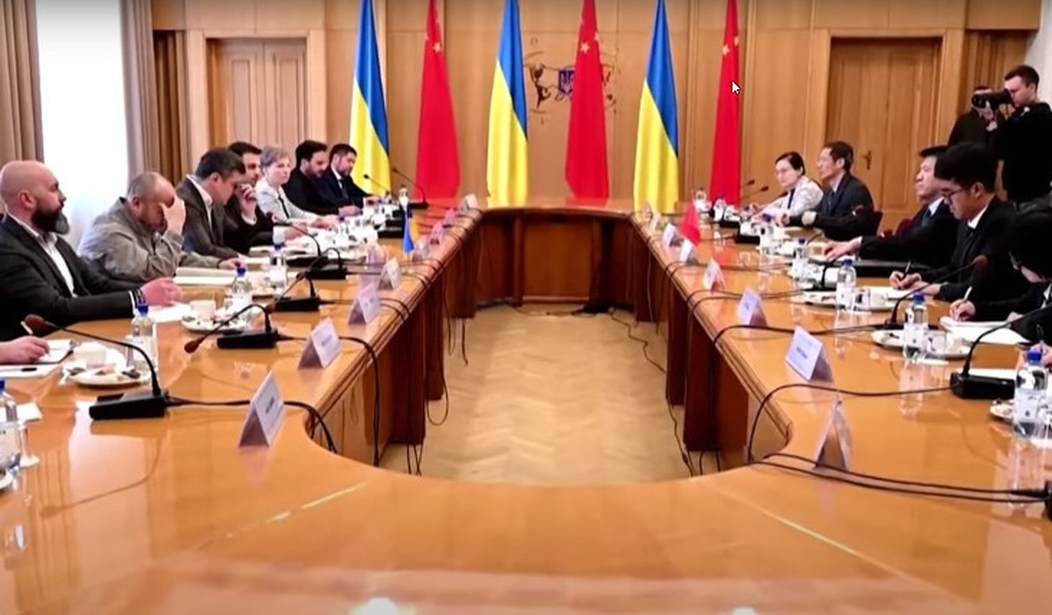



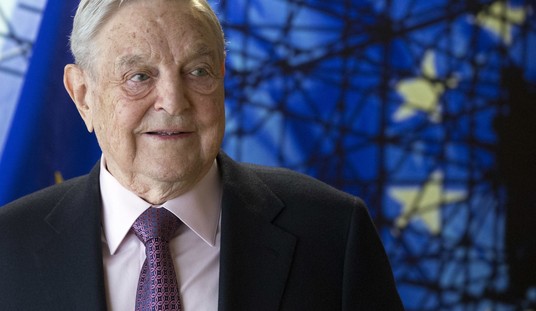

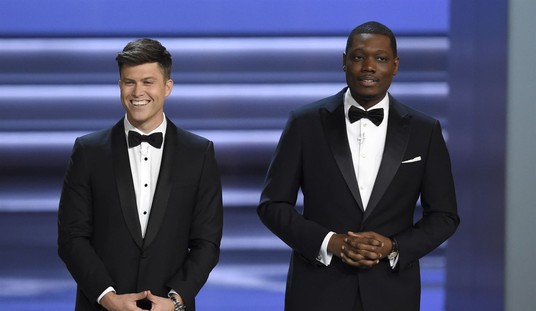


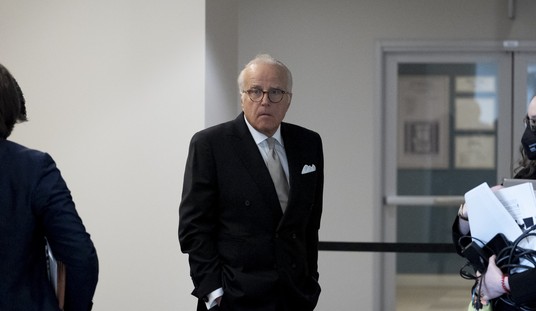


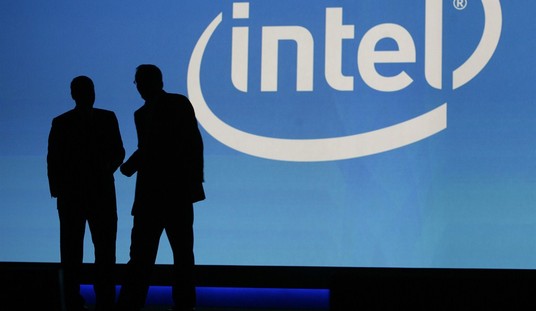
Join the conversation as a VIP Member